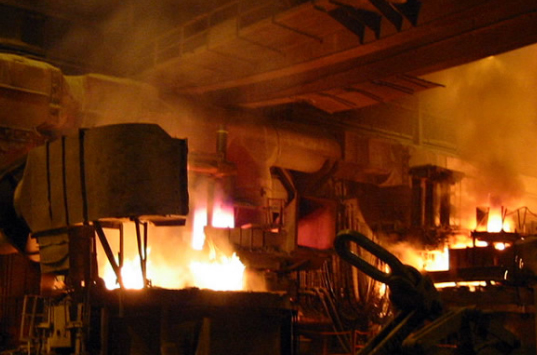
In the realm of steel production, the injection of calcium has emerged as a key technique for improving the efficiency and quality of the steelmaking process. This article explores the significance of calcium injection in steel production, focusing on its impact on deoxidation, inclusion modification, desulfurization, and non-metallic inclusions control. By understanding the benefits of calcium injection, steel manufacturers can optimize their processes, increase productivity, and produce high-quality steel that meets the stringent demands of various industries.
Deoxidation is a critical step in steel production to remove oxygen from the molten metal. Calcium injection, often in the form of calcium silicon (CaSi), plays a vital role in this process. When calcium reacts with oxygen in the steel melt, it forms calcium oxide (CaO) and calcium silicate (CaSiO3) compounds. These compounds effectively scavenge the dissolved oxygen, resulting in the formation of non-metallic inclusions. These inclusions can be easily removed through slag formation, leading to improved steel purity and cleanliness. Calcium injection for deoxidation not only enhances the steel's overall quality but also reduces the risk of defects and ensures the production of high-performance steel.
Non-metallic inclusions present in steel can have a significant impact on its mechanical properties. Calcium injection enables precise control over the nature and morphology of these inclusions. When calcium reacts with impurities like sulfur, oxygen, and phosphorus, it forms stable compounds that combine with the inclusions. This process leads to the formation of calcium-aluminate and calcium-silicate-based inclusions, which are more stable and less detrimental to the steel's mechanical properties. By facilitating inclusion modification, calcium injection contributes to the production of high-quality steel with improved toughness, ductility, and fatigue resistance.
Reducing the sulfur content in steel is crucial for enhancing its mechanical properties. Calcium injection, typically in the form of calcium oxide (CaO) or calcium carbonate (CaCO3), is widely used for desulfurization purposes. When calcium compounds are injected into the steel melt, they react with sulfur, forming calcium sulfide (CaS). Calcium sulfide has a higher melting point than the steel, allowing it to separate as slag and facilitating easy removal. Additionally, calcium injection helps reduce the viscosity of the slag, enhancing the efficiency of desulfurization. By effectively removing sulfur, calcium injection improves the quality of steel and ensures its suitability for applications that demand superior mechanical properties.

Controlling the presence and characteristics of non-metallic inclusions is vital for achieving high-performance steel. Calcium injection aids in the control of non-metallic inclusions during the steelmaking process. By precisely adjusting the calcium injection rate, the size, distribution, and composition of the inclusions can be optimized. This control allows for the production of steel with superior mechanical properties, such as increased strength, toughness, and resistance to fatigue. The ability to manage non-metallic inclusions through calcium injection provides steel manufacturers with a powerful tool to meet the demanding requirements of diverse applications.
Calcium injection has become an indispensable technique in steel production, offering numerous benefits for enhancing efficiency and quality. Through deoxidation, inclusion modification, desulfurization, and control of non-metallic inclusions, calcium injection optimizes the steelmaking process. It enhances steel purity, improves mechanical properties, reduces sulfur content, and ensures the production of high-quality steel. By harnessing the advantages of calcium injection, steel manufacturers can elevate their operations, increase productivity, and deliver steel products that meet the stringent needs of various industries. Calcium injection is a valuable tool for advancing the steel industry and meeting the evolving demands of modern applications.

Write a Message